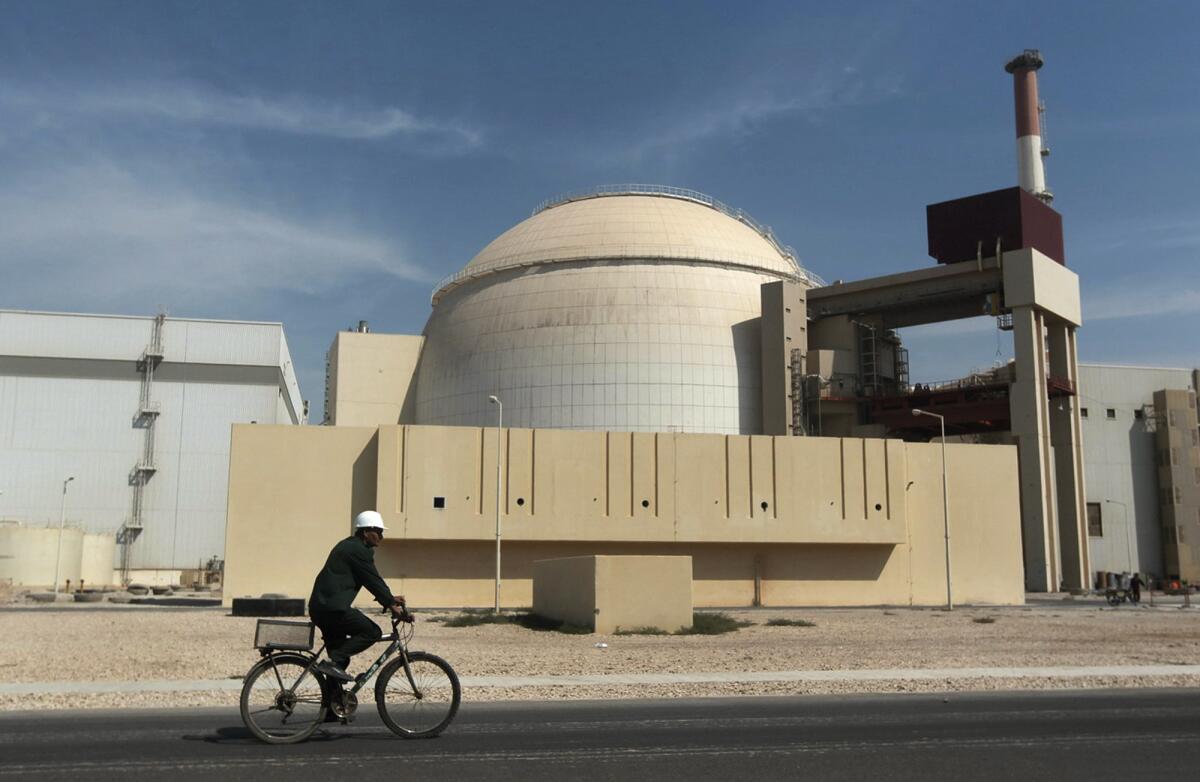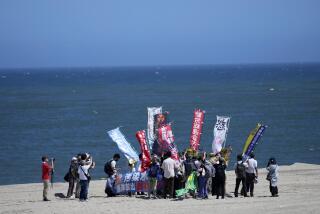A nuclear blind alley for the U.S.

The world is rightly worried about Iran’s uranium enrichment program. Iran claims this technology is for producing fuel for nuclear power plants, but it could be quickly shifted to making nuclear bomb material. Unfortunately, some in Congress, in their eagerness to stem the spread of such technologies, have introduced legislation — separate from their effort to slap further sanctions on Iran — that probably would make stopping nuclear proliferation harder, not easier.
Their idea is to limit future U.S. peaceful nuclear cooperation only to countries that make a legal commitment to forgo building facilities for either uranium enrichment or plutonium reprocessing (the other path to nuclear bomb material). The idea sounds good, but it is likely to be both ineffective and counterproductive.
Why? First, all but a few countries are likely to reject making such a commitment, signing away what they consider to be their rights under the Nuclear Nonproliferation Treaty. Getting into an argument over national sovereignty and national rights would make it very difficult or impossible to discuss practical steps that countries might otherwise take to meet their nuclear fuel needs.
A few countries have been prepared to agree to such terms, but they are unique cases. The United Arab Emirates realized that as the first Arab country to build nuclear power plants, it had to go the extra mile to address international concerns. It signed every nonproliferation commitment available, including a ban on enrichment and reprocessing. Although some call the UAE’s 2009 agreement with the United States the “gold standard,” the reality is that few other countries would agree to similar terms. (Taiwan, which has also accepted those terms, is unusually dependent on the United States and agreed under U.S. pressure.)
Although the recent interim nuclear deal with Iran is a positive step, having acknowledged that enrichment will continue in Iran will certainly make it more difficult to insist that our nuclear cooperation partners can never be allowed to do the same.
Second, the other major nuclear suppliers would not require countries that are abiding by their nonproliferation obligations to forswear enrichment and reprocessing. If the U.S. insists on requiring the UAE model in all its future civil nuclear accords, countries would buy their nuclear reactors from Russia, France, South Korea and China, undercutting the U.S. ability to influence the civil nuclear programs of new nuclear states. The result may be both fewer U.S. nuclear sales and more proliferation risk.
Third, there are many other tools for limiting the spread of enrichment and reprocessing technologies, and those tools are generally working well. Indeed, although few countries want to give up any national rights, precious few have any practical interest in building expensive, demanding and unneeded enrichment and reprocessing facilities. Most countries with nuclear power plants rely on international markets to supply their nuclear fuel.
Tools for limiting the spread of enrichment and reprocessing include strict export controls and interdiction to cut off black-market supply; U.S. legal rights to approve or disapprove reprocessing or enrichment of any nuclear material it supplies; and new and strengthened criteria accepted by the Nuclear Suppliers Group to restrict the transfer of these technologies.
The international community has also provided attractive alternatives to national enrichment plants. For example, in 2010, members of the International Atomic Energy Agency agreed to create an international nuclear fuel bank to serve as a backup supply if the supply to countries was ever interrupted. In the future, “fuel leasing,” in which suppliers agree both to supply fuel and to take back the spent fuel, could allow countries to avoid building their own nuclear waste repositories, creating a powerful incentive for them to rely on international supply.
Diplomatic initiatives have been successful in convincing a number of countries that they have no need to build such plants in the near term (or persuading suppliers not to sell them). But those efforts would have had much less chance of success if they had focused on getting a legal agreement that these countries would never build such a plant.
In short, stemming the spread of enrichment and reprocessing must remain a key U.S. policy objective. But legislation mandating a legal ban in all new civil nuclear cooperation agreements would do little more than freeze the United States out of new nuclear markets and reduce its nonproliferation influence.
Matthew Bunn, a professor at Harvard Kennedy School’s Belfer Center for Science and International Affairs, was an advisor on nonproliferation in the White House Office of Science and Technology Policy from 1994 to 1996. Fred McGoldrick held senior positions in the Departments of Energy and State from 1973 to 1998, where he negotiated U.S. nuclear cooperation agreements and helped shape U.S. policy to prevent the spread of nuclear weapons.
More to Read
A cure for the common opinion
Get thought-provoking perspectives with our weekly newsletter.
You may occasionally receive promotional content from the Los Angeles Times.






